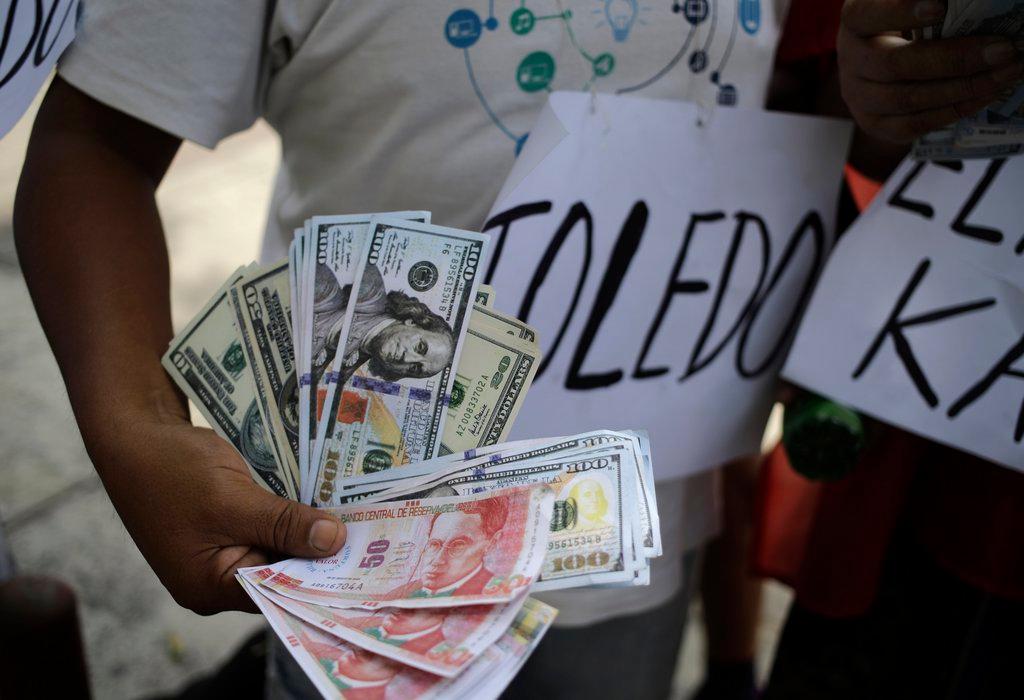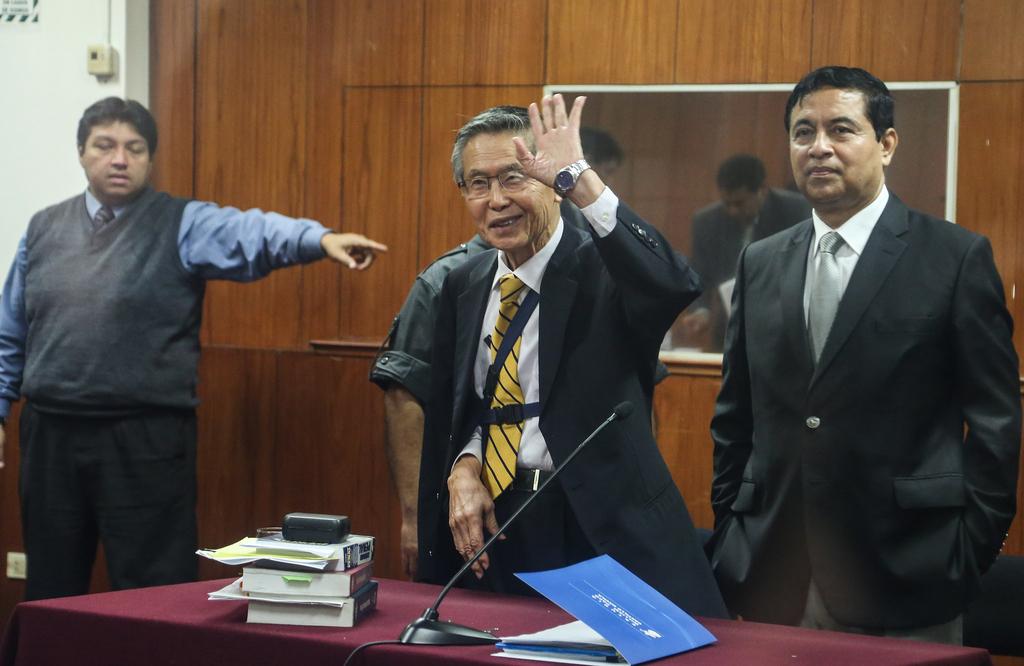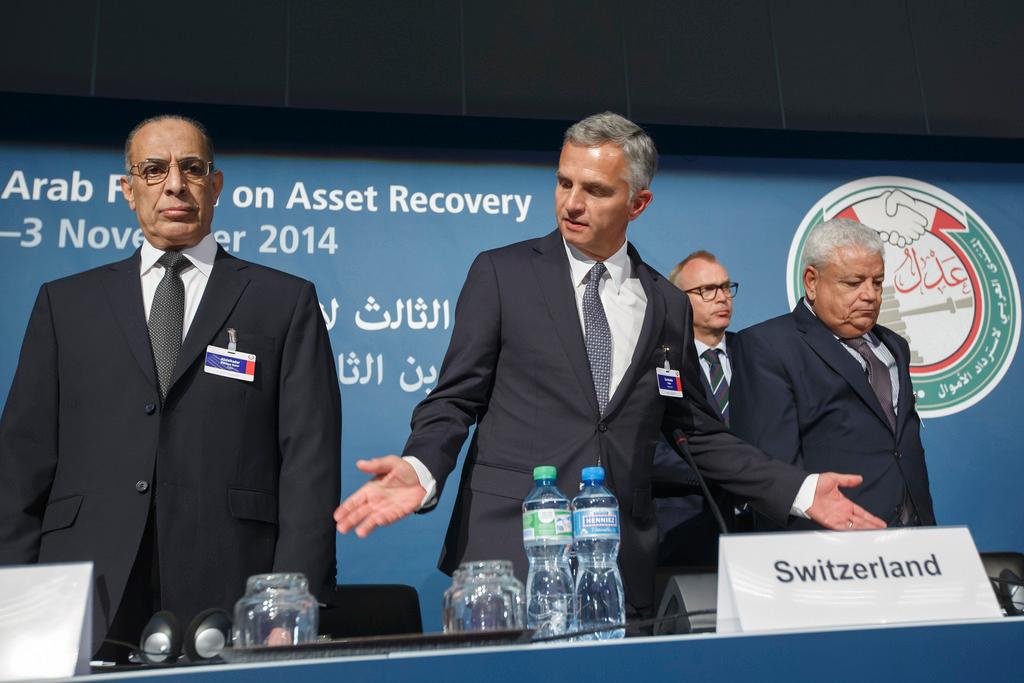Swiss institute: Peru corruption could reach billions

After helping Peru recover some $77 million from Swiss accounts linked to former spy chief Vladimiro Montesinos, the Basel Institute on Governance is now supporting the country’s judicial system in “the most complex and biggest corruption case in Peru’s history”, the institute’s Oscar Solarzano recounts.
A year after former president Alejandro Toledo ran again in the presidential elections, investigations into bribes paid by Brazilian construction giant Odebrecht to politicians in Peru – just one of the twelve countries involved in the vast case – have been drawing an increasingly tight circle around the former head of state.
Earlier this week a judge requested preventative detention for Toledo as part of an investigation into $20 million in Odebrecht bribes.
A separate investigation opened in 2014 that questions the origin of funds from a Costa Rica-based company, Ecoteva, used by the former president to purchase luxury property in Peru, would now appear to be linked to Odebrecht funds.
But the Odebrecht case is not just about Toledo. A plea bargain set in December by Odebrecht with prosecutors in the United States, Brazil and Switzerland, says that $29 million was paid in Peru between 2005 and 2014 – spanning three presidencies – in exchange for major public works contracts.
Six terabytes worth of data – more than double the information provided in the Panama Papers – said to be on a Geneva server is expected to divulge more information. But a sophisticated system of security codes set up by the company is preventing that.
For Solarzano, director of the Swiss institute’s Lima branch, what we are seeing is just the tip of the iceberg.
swissinfo.ch: Is $29 million in bribes an accurate figure in connection with the estimated $10 billion worth of contracts obtained in Peru by Odebrecht during the presidencies of Alejandro Toledo, Alan Garcia and Ollanta Humala.
Oscar Solorzano: This is simply a joke. The bribes in Peru probably amount to hundreds of millions, maybe billions of dollars. We are just at the very beginning of the investigation. We don’t know actually what the $29 million refers to, because in one part of Odebrecht’s project to build the Interoceanic Highways (linking Brazil to the Peruvian coast), only in that context, Toledo had received $20 million.
The company has been in the country for 30 years and the size of its investments is huge. We’re actually talking about three presidential periods involving hundreds of projects, involving billions of dollars, and we don’t know anything about those.
swissinfo.ch: Why are the Peruvian authorities now moving against Alejandro Toledo, even as we do not yet have all the elements of the investigation in place?
O.S.: The prosecutor is moving in an opportunistic way – a positive opportunistic way. Because he had a court order against Toledo he went for it. But there is a risk that if you base your case only on information from a whistleblower, then this information has to be validated in court.
swissinfo.ch: What role does your institute play as Peruvian corruption investigations proceed?
O.S.: We have been supporting the attorney general’s office with regard to international cooperation. We were in Switzerland last December with a delegation of prosecutors, including Hamilton Castro, the prosecutor in charge of the Odebrecht investigation, his deputy and the head of the international cooperation unit (Alonso Peña). Basically we are providing the knowledge, helping Peruvian authorities to draft and prepare documentation for international cooperation to meet all the standards required by Switzerland and other jurisdiction.
The prosecutor until now has been bringing all the information he has from Brazil, mainly statements from whistleblowers. They are using this to bring preliminary investigations in Peru. But after this, the court statement will be validated by financial data and this documentation will be placed abroad – meaning Switzerland, Panama, Cayman Islands, Andorra, etc.
The Basel Institute is working with the Peruvian justice ministry responsible for assessing the civil reparations that Odebrecht will pay to Peru. As a victim, the state has the right to civil reparation, and we are helping them now to assess the amount of money they will ask from the company.
A new section of the Peruvian judiciary was recently created with anti-corruption judges, who will be leading the Odebrecht case, and we are training them to do so.
swissinfo.ch: What challenges lie ahead in the investigation, particularly regarding Peru’s cooperation with Switzerland?
O.S.: When you have criminal behavior, you have to characterise it –you need to call it corruption, trading in influence or money laundering, whatever. This technical part is extremely important because if you have a financial crime, where you have to get information from other countries, particularly Switzerland in this case, and you do this characterisation for an offense that is not recognized in Switzerland, then we have a problem.
The characterisation made by Hamilton Castro is basically influence peddling. If we want to get information from Switzerland based on this characterisation, this would be impossible. I am very concerned, as this will undermine our work.
swissinfo.ch: How is the earlier, so-called Ecoteva investigation linked to the current Odebrecht case? A Toledo associate, Josef Maiman, had been linked to a bank account at an LGT Bank account in Zurich.
O.S.: The LGT account was in the name of a company, Confiado International, and the company was in the name of Mr. Maiman, a beneficiary owner. The company wired $17 million to two shell companies in Costa Rica. The shell companies then wired the same amount to another one called Ecoteva, owned by Toledo’s mother-in-law. (The 89-year-old Eva Fernenbug, who lives in Belgium, bought a luxury home and office in Lima worth $4.6 million.)
Peruvian authorities tried to lift banking secrecy of Confiado’s account in Zurich, but they didn’t succeed because Switzerland asked for the predicate offence. Now that we know that the predicate offence was actually a bribe, we are working on a new letter for Switzerland in order to lift the banking secrecy of that account.
swissinfo.ch: As Odebrecht allegedly continued to bribe officials until 2014, what is being done regarding investigations into possible wrongdoing by former presidents Garcia and Humala?
O.S.: I think (Garcia) has been the smartest of the three presidents. He has been protected by frontmen here. So it will take some time before people start talking about Garcia.
The prosecutor consulted me on a few issues regarding the characterization of the offenses (about Humala), which is extremely important. (Former first lady Nadine Heredia) was finally included in the investigation of the construction of Gasoducto Sur pipeline. I think she will be prosecuted as a primary accomplice of the corruption committed by her husband.
swissinfo.ch: Another investigation aided by your institute is the attempt to recover from Swiss banks other bribes paid to Montesinos in the sale of Russian MIG jets. Where does that case stand?
O.S.: We send the decision to Switzerland (after receiving a confiscation order from the Peruvian judiciary system for the bank accounts in Zurich associated with the bribe money), for enforcement to be executed: confiscate the money and send it back to Peru. But in Switzerland, a double instance proceeding needed to take place.
We won the instance in Zurich, and … three days ago we received information from the federal justice office that Bellinzona issued a decision in favor of the Peruvian state. Basically we won. There are ongoing discussions between the two countries on how the money will be repatriated.

In compliance with the JTI standards
More: SWI swissinfo.ch certified by the Journalism Trust Initiative












You can find an overview of ongoing debates with our journalists here . Please join us!
If you want to start a conversation about a topic raised in this article or want to report factual errors, email us at english@swissinfo.ch.